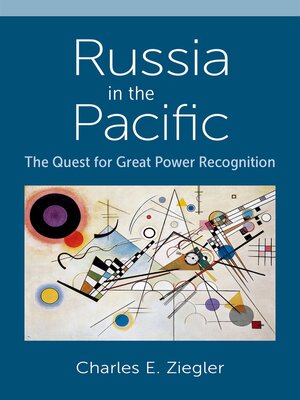
Sign up to save your library
With an OverDrive account, you can save your favorite libraries for at-a-glance information about availability. Find out more about OverDrive accounts.
Find this title in Libby, the library reading app by OverDrive.



Search for a digital library with this title
Title found at these libraries:
| Loading... |
Russia in the Pacific approaches the puzzle of why Russia, with much of its huge territory straddling Asia, has not had more success in establishing a position as a great power in the Asia Pacific. Russian leaders from Nicholas II in the late nineteenth century to Vladimir Putin in the twenty-first have periodically advanced policies to gain territory or influence, secure buffer zones in the region, develop the sparsely populated Far East and protect it against foreign intervention, and integrate into the regional economy, but have met with only partial success. Structural factors constraining Russian regional aspirations include geographic challenges, demographic imbalances, and persistent low levels of economic development. Institutional factors—the hyper-centralized, secretive character of Russian foreign policy making, bureaucratic competition, and dominance of a single powerful executive-also have been critical in shaping Russian foreign policy toward the Pacific. The persistence of certain patterns in Russia's Asia policy suggest even the most powerful autocrat faces constraints. Starting with Russian imperial expansion in the late nineteenth century, Charles E. Ziegler considers the impact of the Russo-Japanese War on late tsarist Russian autocracy and assesses Soviet Asian initiatives under Stalin and his successors during the Cold War. He examines the diplomatic, economic and military dimensions of Vladimir Putin's pivot toward the Asia Pacific. His conceptual approach is analytically eclectic, combining realism's focus on military and economic dimensions of power with a constructivist attention to domestic politics, culture, and questions of national identity.






